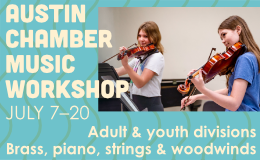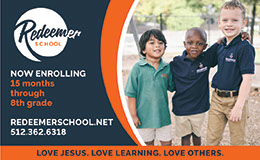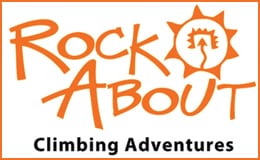by Sherida Mock
So many adults are listening to podcasts these days. (Who hasn’t caught an episode of a show like “Serial” and binge-listened to the end of the season?) But they’re not just for grownups anymore. Podcasts for kids are on the rise, too, and one of the latest to take off is Austin-based, twice-monthly “Tumble,” a science-themed podcast aimed at 8 to 12 year olds. We recently spoke with founders Lindsay Patterson and Marshall Escamilla about their journey from dream to reality and the gratifying feedback they’ve received from their youngest followers.
AF: Tell us about your family.
Lindsay: We got married in 2011, and we have a 2½ year old son named Emmett. We started the podcast not long after he was born.
AF: What are your backgrounds?
Marshall: I teach music in a private school. Lindsay: My background is science reporting for public radio. Sara Lenz is our associate producer. She’s a science reporter. She has a baby girl who just turned 1, and her husband is a music teacher.
AF: Tell us about your favorite podcasts.
Lindsay: I have so many. I was just listening to “Criminal.” It’s really well reported. I love “First Day Back.” It’s so beautifully done. I also like “You Must Remember This,” which is stories of old Hollywood. Marshall: I’ve been fond of “Revolution.” It’s a history podcast.
AF: And for kids?
Lindsay: We worked closely with Andrew and Polly, who did “Ear Snacks.” And then there’s “Brains On,” a show about science, hosted by a 6 year old. There’s “Sparkle Stories.” They’re based in Austin, too. “Story Pirates” is stories written by kids. There’s also “Book Club for Kids.” And one just started that I’m excited about called “The Adventures of Eleanor Amplified.” It’s radio fiction about a reporter getting into all kinds of adventures. That’s super engaging.
AF: What made you decide to start your own podcast?
Lindsay: I had a lot of creative energy, and it seemed there was a real absence of listening material for kids. Podcasts fit really well into their preexisting habits: going to school and before bedtime and playing while listening to something. It gives them an alternative to screen time. We hear from listeners that every single time they get into the car to go to school, they want to listen to “the science podcast.”
AF: What do you hope kids will get out of your podcast?
Lindsay: We’ve heard from kids who listen to it for fun. People like our podcast for the storytelling aspect. Kids will listen to it, and it will turn on their imagination. So now they’re going to the park, but they’re hunting for dinosaur eggs, or they’re making forts, but they’re in a submarine at the bottom of the ocean.
We’ve also heard from teachers who use it in the classroom. I got to Skype with one 4th grade teacher who used it as something to listen to while they were doing handwriting. It’s a way to talk about science when you’re not necessarily in science class.
When I was growing up, I did not like science at all. The experiments we did were things the teacher already knew. It’s basically a demo. I never understood until I interviewed a scientist on a fluke assignment. He was trying to figure out something that could help the world. He didn’t know the answer when he went in to do the experiment.
Marshall: That’s how everything we know was found out. They didn’t know the answer, and they tried to figure it out using evidence. We’re saying, “This is how science works.” It’s not an absolute truth that’s suddenly true forever. It’s about getting the best explanation we can, based on the observed evidence.
Lindsay: A lot of people lose their curiosity as they’re told, “Your grades in science aren’t so great.”
Marshall: Kids get that in all kinds of subjects. “I’m not a mathematician.” A lot of young boys get the idea that, “I’m not a student.”
AF: What sort of feedback have you received?
Lindsay: I’ve heard from kids who say they just want to listen to the same episode over and over. Drawings are the best kinds of feedback. We always ask kids to participate in some way, like to design a t-shirt for a bat or your invention for a helmet that will protect from concussion or how to get trash out of the ocean. I don’t think adult podcasts could get such great feedback.
Marshall: One of the questions we got from listeners was, “Is the universe going to end?”
Linsday: The aspect of the universe being beyond the capacity of humans to know is really interesting and inspiring in itself. We talked to a black hole scientist who was like, “We have these theories about how it works, but we’re really waiting for somebody new to come in and blow the whole field open.” That could be a kid who’s listening right now.

















